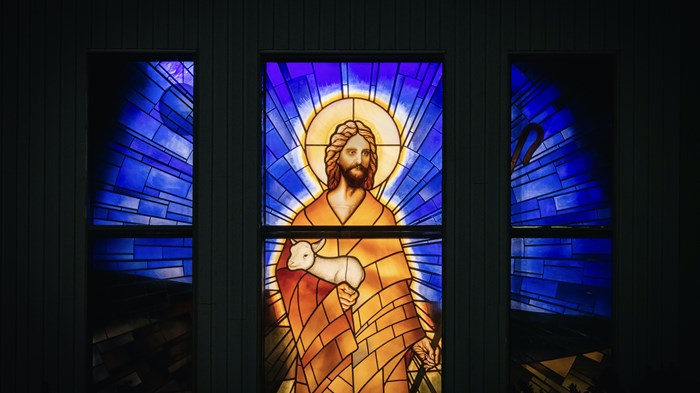
“But there is a danger in the solitary life …the first and paramount danger is that of self-pleasing.”
– St. Basil of Caesarea, Longer Responses 7.3.26
Humanitarian crises range from the Syrian war to the Botswana drought and the Venezuelan collapse. The numbers are staggering. In 2020, the UN estimates that approximately 1 percent of the world’s population is displaced. UNHCR, the UN refugee agency, estimates the number of forcibly displaced persons (FDP) worldwide at the end of 2019 to be in excess of 79.5 million; 26 million of whom are refugees. The UN reports that 30,000 people were uprooted every day in 2019 alone. Eighty percent of the world’s displaced persons are hosted by developing countries or territories affected by acute food insecurity and malnutrition. Forty-eight percent of the world’s refugees are women and girls, and 50 percent of the world’s refugees are under 18 years old.
Food shortages and anxiety about the food supply were as endemic in the ancient world as they are in many parts of the world today. Extremely cold, dry winters, followed by hot, dry springs would lead to “catastrophic agricultural crisis as wells and rivers dried up and crops failed.” Such was the case of the winter of 367-68 c.e. in the ancient province of Cappadocia, in modern-day Turkey. By the Fall of that year, the results were devastating: “Laborers began to starve. Schools closed down. The populace came to church to pray for rain. The poor who worked in the fields and wandered along the roads took on the appearance of living cadavers. Possibly the poor resorted to exposing their children, or selling them, while the rich haggled with them over the purchase price.”
As a church leader of an influential city in a province at the borders of the Roman Empire, St. Basil, who later became the Bishop of the city, used his great skills and resources as administrator to change the cities in his jurisdiction. Personal piety and doctrinal orthodoxy were not his only concern. He knew that the plight of the needy, sickness, disease, and systemic poverty were also his responsibility. St. Basil encouraged care for the poor and needy and insisted that care of the marginalized was the primary evidence of God’s presence. This understanding of the role of the Church prompted Basil to establish a neighborhood that contained a range of buildings for the care of the sick and for the distribution of surplus food to those in need. This neighborhood came to be known as the Basileiados (i.e. “the city of Basil”) and became a refuge for many generations. Under Basil’s leadership, the Church established hospitals for the poor and hospices for Christian pilgrims, as well as a series of what would be called “urban monasteries,” whose task was to provide charity throughout the city. It was Basil and his monks who spearheaded a large-scale relief effort in Cappadocia in the aftermath of the famine. St. Basil’s insight into the Christian life was profound:
There are other dangers in the solitary life ... The first and greatest danger is that of self-pleasing. ... For we see that our Lord Himself, from his exceeding great kindness, did not rest content with words or precepts, but expressly set before us an example of humility in the perfection of His love. For indeed, He girded Himself and washed His disciples’ feet [(John 13:5)]. Whose feet will you wash? To whom will you be a servant? Among whom will you be the last of all, if you live alone by yourself?
Basil was no mere theorist. He was a priest, a pastor, and bishop at work. Basil insisted that, as Christians, we love our neighbor because it is in our nature as created by God. His friend and colleague Gregory of Nazianzus tells us how Basil led the monks in a choreography of communal practices in which the life of prayer was animated by their care for the poor. Basil was deeply interested in “practical religion, in developing a sense of social responsibility among Christians.”
Basil insisted that absence of generosity is a major sin. In stressing love of neighbor, St. Basil placed the Christian life into a community context. He believed that the chief and visible social sign of Christian conversion, life, and perfection would not be simply spiritual but that it would also influence society deeply—even economically. The isolated life is alien to Christianity and a theological oxymoron. John 13:35 identifies love of God and neighbor as the sign of the true disciple. In keeping the first commandment we keep the second and vice-versa. His Basileiados became quickly a concrete expression of what Basil called, “Christ’s polity” a new city, “the storehouse of piety ... [w]here sickness is endured with equanimity, calamity is a blessing, and sympathy is put to the test.”
Check back tomorrow for the conclusion of this piece by George Kalantzis.
Resources:
“Figures at a Glance: UNHCR|USA.” https://www.unhcr.org/en-us/data.html
Holman, Susan R. The Hungry are Dying: Beggars and Bishops in Roman Cappadocia (New York: Oxford University Press, 2001), 67-69.
Basil, Reg. Fus. 7:34-36. The critical edition of the Long Rule is found in Anna Silvas, The Asketikon of St Basil the Great. Oxford early Christian studies. Oxford: Oxford University Press, 2005. Here I am using the translation by E. F. Morison, St. Basil and His Rule: A Study in Early Monasticism (London: H. Frowde, 1912), pp. 43-44 because I find that his translation presents Basil’s passionate plea in a richer language.
Anthony Meredith S.J., The Cappadocians (London: Geoffrey Chapman, 1995).p.29
Philip Rousseau, Basil of Caesarea (Los Angeles, CA: University of California Press, 1994), p. 136.
GNaz, Oration 43.63.
Dr. George Kalantzis is a Professor of Theology at Wheaton College and directs the Wheaton Center for Early Christian Studies. He is also a Senior Fellow with the International Association For Refugees.
The Better Samaritan is a part of CT's
Blog Forum. Support the work of CT.
Subscribe and get one year free.
The views of the blogger do not necessarily reflect those of Christianity Today.






















